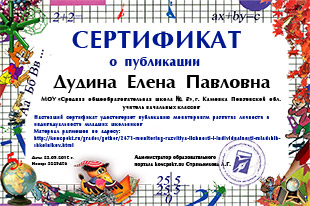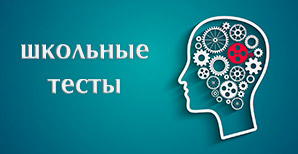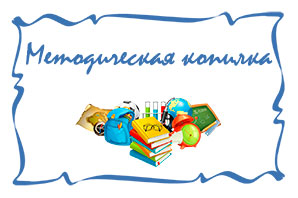Контроль говорения английский язык "Spotlight 10-11"
Несмотря на многообразие различных видов упражнений на отработку различных навыков при изучении иностранного языка, основным остается умение вступать в коммуникацию с партнером.
Соответственно говорение – основной вид речевой деятельности, к становлению которого и направлены все упражнения и отработки в ходе изучения языка.
Современные УМК представляют широкое поле для разговора по различным темам, а так же, начиная с уровня Intermediate, есть тезисы, выступающие триггером у обучающегося к высказыванию своей точки зрения, чем не стоит пренебрегать учителю.
Однако образовательный процесс все же отличается от простого непринужденного разговора, т.к. есть контрольные точки, позволяющие произвести замер сформированости навыков говорения в соответствии с необходимой критериальной базой оценивания. Контрольные точки в плане говорения представлены сегодня в УМК редко. Задача учителя отобрать опорные тезисы темы и ввести лексический набор, затронутый в ходе изучения раздела.
В данной статье мы будем опираться на УМК Spotlight 10-11. Изучение раздела в этом комплексе начинается с отработки навыка чтения и он же запускает целый вокабуляр по теме модуля. Помимо того, что лексические единицы выделены в тексте, они так же вынесены в Word List в конце учебника, так же с тематическим разделением и цветовым акцентом на активный словарный запас.
С этого момента необходимо начинать введение в модуль. Зачастую на данную первую часть модуля - Reading Skills отводится по КТП 1 час. На базовом уровне этого недостаточно, т.к. именно эту часть нужно отработать лексически обширно и только потом приступать к совершенствованию навыка чтения.
Просто слова без ассоциативного ряда мало эффективны. Поэтому лексика должна быть услышана, отчитана, проговорена и закреплена в контексте собственном и по теме раздела. От того насколько плодотворно будет отработана и закреплена активная лексика модуля, будет зависеть успешность говорения обучающихся по пройденному вопросу. Именно с такими знаниями обучающиеся подойдут к контрольной точке говорения.
Таким образом, правильно сформированное начало изучения модуля, наполнит речь ребенка не только словами, но уже и готовыми предложениями по изучающейся проблеме. Собственно сама контрольная точка – говорение не займет более 2-х минут высказывания.
Как и в письменной речи, ответы по тезисным позициям должны быть полными: ответ + supporting sentence. (подтверждающее предложение / пример / точка зрения)
Ниже приведем опорные позиции к контролю говорения в соответствии с разделами УМК Spotlight 10-11. Так как это заключительная ступень среднего образования, предполагающая умение обучающихся работать с вокабуляром, внесение активных лексических единиц в само задание может вносится на усмотрение учителя.
Spotlight 10
Module 1. Strong ties
You will speak for not more than 2 minutes (12-15 sentences). In your talk, remember to speak about:
- Who is your best friend.
- What relationships do you have with your friend.
- Describe your friend’s appearance and personality.
- What are your favourite activities? Do you have some common activities with your friend?
Module 2. Living and Spending
You are going to have a talk about living and spending. You will speak for not more than 2 minutes (12-15 sentences). Don’t forget to say about:
- What do teenagers in your country spend their money on?
- Where do you get your money from?
- What do you spend your money on?
- What free-time activities do you have? Do you need money for it?
- What does it mean to be responsible with your money?
Module 3. Schooldays and work
You are going to have a talk about school education. You will speak for not more than 2 minutes (12-15 sentences). Don’t forget to say about:
- Types of schools.
- What type of school do you have?
- Russian and American school system. How are the systems similar/differ?
- Teaching style
- Extra-curricular activities
- The benefits of going to school
The problems some children have all over the world.
Module 4. Earth Alert!
You are going to have a talk about the environmental issues. You will speak for not more than 2 minutes (12-15 sentences). Don’t forget to say about:
- What environmental issues do you know? What consequences of these actions can you name?
- How can we protect our environment? What is 3Rs?
- How can people be encouraged to reduce waste?
Module 5. Holidays
You are going to have a talk about holidays. You will speak for not more than 2 minutes (12-15 sentences). Don’t forget to say:
- What types of travelling do you know?
- What can you do/find out/ buy while travelling abroad?
- What problems can you come up during your holidays?
- Have you ever had a bad travel experience? What happened? What did you do?
- Does travel broaden the mind?
Module 6. Food and Health
You are going to have a talk about food and health. You will speak for not more than 2 minutes (12-15 sentences). Don’t forget to say:
- Are fruits and vegetables important for our health?
- What cooking methods do you know? How do you usually eat vegetables and meat?
- What is rainbow of food?
- Which colour food should you eat if you have a difficult exam to study for?
- Which colour food should you eat if you have been feeling a bit sad lately?
- What health problems do you know? How can you solve them?
Vocabulary: boost, brain, the power/lack of concentration, infections, emotions, creative, soothing, emotionally and physically, steamed, boiled, toasted, grilled, fried, raw, baked, tooth decay, indigestion, well-balanced meal, spicy food, low-carbohydrate diet, hunger, starvation.
Module 7. Let’s have fun
You are going to have a talk about entertainment. You will speak for not more than 2 minutes (12-15 sentences). Don’t forget to say:
- Which forms of entertainment do you like/not like? Why?
- What do you think about square –eyed generation?
- What types of performances do you know? Which of them do you attend?
- How do you prefer to spend your leisure time?
Module 8. Technology
You are going to have a talk about technology. You will speak for not more than 2 minutes (12-15 sentences). Don’t forget to say:
- What technological devices do you know? How have they changed during the time?
- Name 3 gadgets you can’t live without?
- Electronic equipment and problems. What problems with electronic equipment have you had?
- How did you solve such problems?
- British inventions which were very important for nowadays?
Spotlight 11
Module 1. Relationships
You are going to have a talk about relationships. You will speak for not more than 2 minutes (12-15 sentences). Don’t forget to say:
- What family do you have? (full, foster, extended relatives, immediate family…)
- What relationship are there between the relatives in your family?
- Who is the household of the family?
- Who is responsible for making money? Who is responsible for doing household chore?
- Where does your family live? Does your life depend on the place of living? Why? Why not?
Module 2. Where there is a will there is a way
You are going to speak about stress in our life. You will speak for not more than 2 minutes (12-15 sentences). Don’t forget to say:
- What is stress?
- When is the high time for you to relax?
- Steps which can help you to cope with intension.
- Have you ever faced the peer pressure? Your attitude to this thing.
- Helpline/Child Line. Who does it help?
Module 3. Responsibility
You are going to speak about responsibility in our life. You will speak for not more than 2 minutes (12-15 sentences). Don’t forget to say:
- What kinds of a crime and criminals do you know?
- Which of the crimes is the most serious to your mind? Why?
- What punishments do you know?
- What rights and responsibilities do we have?
Module 4. Danger!
You are going to speak about danger. You will speak for not more than 2 minutes (12-15 sentences). Don’t forget to say:
- When was the last time you got ill?
- What illnesses and injuries do you know? What symptoms are typical for it?
- Have you ever had an accident? What happened?
- What is the risk of dangerous sport and discoveries?
- How important was Florence Nightingale’s work?
Module 5. Who are you?
You are going to have a talk about way of living. You will speak for not more than 2 minutes (12-15 sentences). Don’t forget to say:
- What is homelessness? Why do you think these people don’t have a home?
- What types of houses do you know? How do the types of houses depend on the social position of people?
- What problems are there in our neighbourhood?
- What problems do you have in the area you live? What can we do to solve it?
Module 6. Communication
You are going to speak about communication. You will speak for not more than 2 minutes (12-15 sentences). Don’t forget to say:
- Extraterrestrials as the part of communication;
- Communication in space;
- Newspapers and the media. What types of press do you know?
- Ancient means of communication?
- How do you usually gain news? Explain your choice.
- Why is the process of communication important in our life?
Module 7. In days to come
You are going to have a talk about future dreams, plans and ambitions in our life. You will speak for not more than 2 minutes (12-15 sentences). Don’t forget to say:
- What do you think Henry Ford, Beethoven and Abraham Lincoln have in common?
- What are the main steps to achieve the goals in life?
- How can you comment: “Genius is 1% inspiration and 99% perspiration”?
- What do you think your future will be like? Your future education?
- Name 5 ways to change the world which are accessible to everyone?
Vocabulary to use: failings; defeat; insurmountable obstacles; to give up; to achieve a dream/goal; to banish self-doubt; to apply for; enrol; to get a lot back; to believe; keep your head; triumph; grant; loan; prospectus…
Module 8. Travel
You are going to have a talk about travelling. You will speak for not more than 2 minutes (12-15 sentences). Don’t forget to say about:
- Do you like travelling?
- Which means of transport do you prefer for travelling?
- What rules must you follow in the airport?
- How many luggage do you usually carry for a two-day trip?
- Which places do you prefer to travel?
- What mystic places do you know? What is special about them?
- Do you always keep someone back home informed of your whereabout?
Vocabulary: mystic, ancient, inhabited, symbols, remote, worshipped, civilization, preserve, unique, conserve, check-in desk, baggage reclaim, departures board, conveyer belt, passport control.



